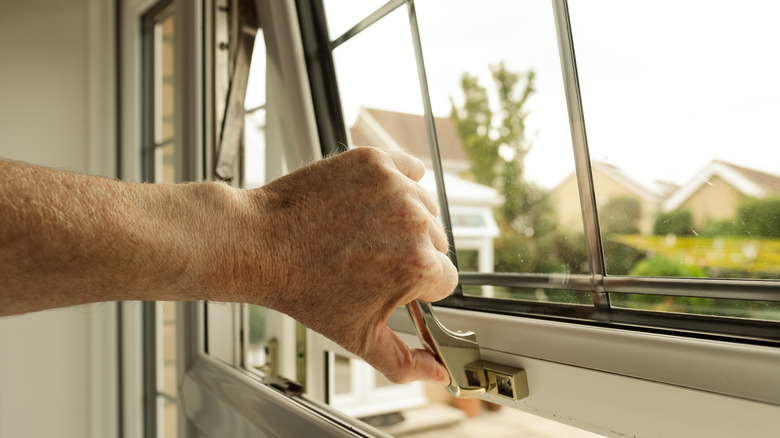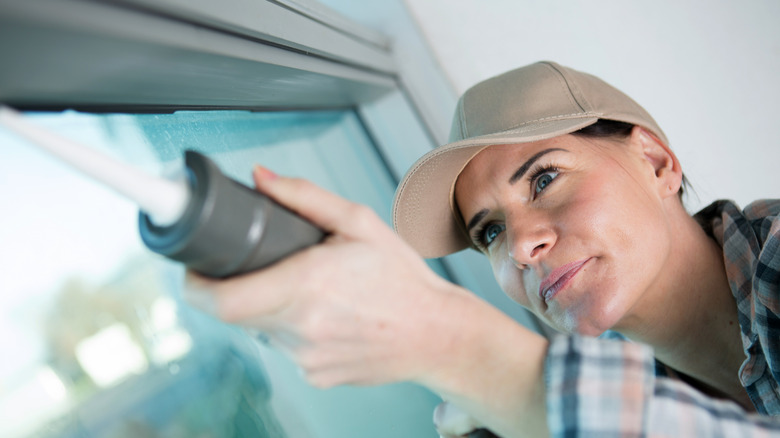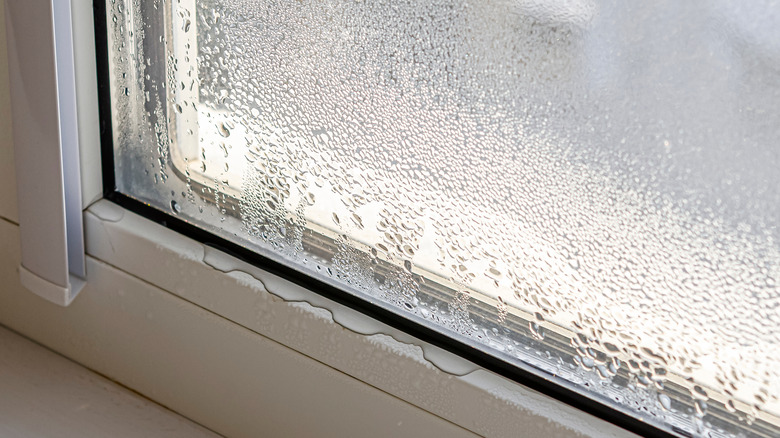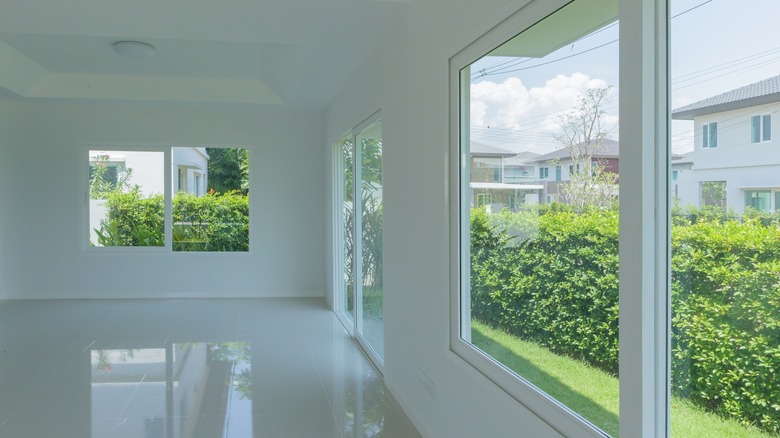5 Signs Your Windows Are Causing Your Heating Bill To Skyrocket
If you're unsure why your home's heating bills are on the rise, just take a walk around your property. Any area where air can get out of your home could be a source of heat loss, which means your home's furnace has to work harder and longer to keep your home at a temperature you like.
The windows in your home may be a big contributor to this problem. The U.S. Department of Energy estimates that your windows could be causing you to lose as much as 30% of your warmed air. That's a significant amount of heating energy lost because of your windows. That means, if heating your home costs $100 a month, you're letting $30 of that escape through the windows.
Yet, your windows aren't open, and you do a good job keeping them that way. How, then, are your windows allowing this type of significant heat loss on an ongoing basis? Here are the signs to look for in your home.
1. Your windows don't close properly
You may be closing your windows daily, but if they don't close properly, and even small gaps remain, that could cost you a significant amount of money. Those small gaps can let cold air in during the winter while also allowing your heated, warm air out, raising your heating costs.
Homespire Windows states there are numerous reasons why this can happen. If you've painted over the windowsill multiple times, that could create a gap, for example. It's also important to clean the tracks that the windows sit on, as that can cause small gaps that allow air to escape. Other concerns may include improper fitting of the window, a loose fastener, or the need to lubricate the window to improve its ability to slide closed all the way.
Take a look at each window in your home. Does it really close — and lock — completely?
2. You feel drafts
Walking around your home on a cold day, you may feel the temperature drop when you are close to the windows. Drafts, which are typically to blame for those bursts of cold air you feel while sitting near a window, are expensive losses of energy as well.
According to John Moore Services, drafts around windows are one of the most common reasons people don't feel comfortable during the colder months. Air leaks can also increase heating bills because they can significantly contribute to heat loss.
It may be possible to pinpoint areas of drafts that indicate repairs need to happen, such as by looking for anywhere the window's caulking is worn out or missing. This means small gaps exist that allow that cold air in. It may be possible to place a shim in that space to stop the air leak or to add more caulk to the openings to close them up.
3. The glass is foggy
If it's become difficult to look out your windows and see a clear view due to a fog buildup on them, that could also mean your heating bills are too high. According to Garrety Glass, foggy windows like this happen when the seal around it is missing or deteriorated.
Most homes have insulated glass units (IGUs) within them. This is an important feature because it helps to make the glass more energy-efficient. However, to keep that seal around this gap between windowpanes intact, there needs to be an airtight sealant in place. When the IGU starts to deteriorate, that often leads to air loss. This may happen due to water exposure, excess heat, or in some cases, just normal wear and tear.
Depending on the severity, you may need to consider window replacement to fix this problem. It could mean your energy-efficient windows are no longer able to keep air out.
4. Your energy bills are increasing
There are plenty of reasons why your energy bills could be higher, such as extremely cold conditions outdoors or an inefficient furnace. Window energy loss may worsen gradually over time, or if there's sudden damage to the window, such as the neighbor tossing a ball through it, that's going to create a significant difference. If you're sure some of the increase is coming from your windows, you'll want to take action to fix this as soon as possible.
You may be able to increase the efficiency of your existing windows, according to the U.S. Department of Energy. There are a few ways to do this, such as finding and fixing any air leaks and adding weatherstripping around the windows to block out more of the air loss through gaps.
Sometimes, using window coverings can help to reduce the amount of energy loss as well. A solar control film may also be a cost-cutting measure.
5. You have older windows
When was the last time you replaced your windows? Allied Siding & Windows states windows can last for decades and remain efficient (depending on what you started with!). Double-paned windows, which are some of the most common, can last as long as 20 years. If you have aluminum windows, you can expect those to last as long as 30 years, assuming good maintenance and upkeep to them. The longest-lasting windows tend to be fiberglass, which can stick around as long as 40 years.
If it's time to replace your windows, be sure to look for those that are ENERGY STAR-rated. That can help ensure they're less likely to cause an increase in your heating bills. Work with your window contractor to determine the best choice of windows for your home with a focus on ensuring they keep the cold air out in the most efficient manner possible.





